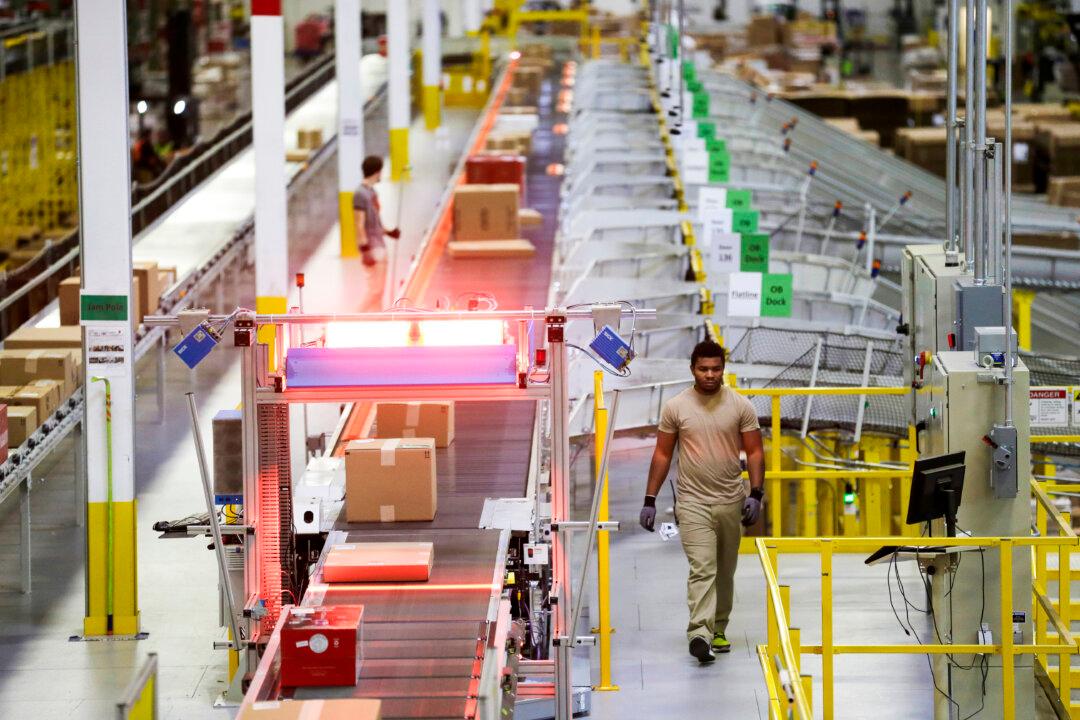Amazon is facing fines of nearly $6 million after California authorities found that the company was not giving written quotas to its warehouse workers as required by law.
Amazon was deemed to have violated California’s Warehouse Quotas law for two of its distribution warehouses in Moreno Valley and Redlands, said a June 18 press release by the state’s Department of Industrial Relations. The law, enacted in 2021, requires warehouse employers to provide workers with written notice of quotas they need to follow. The notice must include the number of tasks workers are expected to complete in an hour and detail the disciplinary actions that would be taken for failing to meet the quota. However, Amazon was found to not have provided the written notices.





